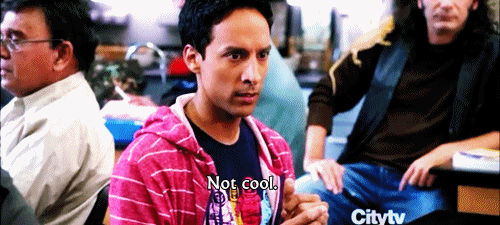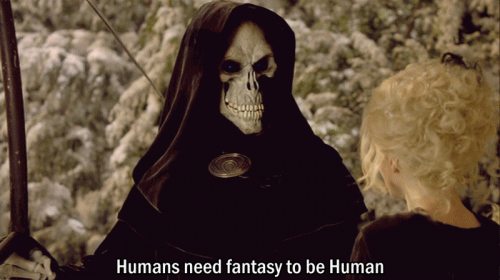Central to this story is how little I can cope with dead things. Sure, not many people are great when confronted with death of any sort, but for me it lingers closer to the ‘phobia’ end of the discomfort scale. Even insects, I can’t bear to touch them if they’re dead. I’m perfectly happy to chat to a live spider; dead spiders give me chills and a deep sense that I’m about to be sick.
This is largely why I can’t stomach meat that still contains bones, or dishes that look like the animal they once were. If it wasn’t for the fact that you can strip away the bones and identifying features and be left with a piece of meat that looks like food and not an animal, I would undoubtedly be a vegetarian. It takes everything I’ve got just to dispose of chicken bones.
It’s a sensory trigger that, when I encounter something that is not a plain meat, my brain screams DANGER THIS IS NOT FOOD or THIS USED TO BE ALIVE. The repulsion that goes with it is so strong that it will end in me being physically sick.
So that about describes how little I cope with the presence of dead things.
When I moved into my new house, the silence began to bother me. I’ve never lived completely on my own, so being the only one moving about and making noise was both lonely and weird. The lawns were overgrown before I got the keys and cut not long before, removing any little homes creatures had made in the backyard while the house lay vacant.
Which is how I came to know Giles, a mouse who took up residence in my rundown little house around the same time as I did. I didn’t name him at the time. I’ve posthumously named him for the purposes of this blog in the hope a name brings empathy from readers, rather than the usual ‘mouse? Gross!’ response. It may help you understand how I got weirdly attached to this fellow.
I noticed him first when he scurried from the second bedroom, and toward the lounge room. At the time, I had no furniture to speak of, so I was sat leaning against the wall with a pillow from my bed as a cushion. My computer sprawled out on the carpet in front of me. He stopped at the entrance to the lounge, froze on the threshold between kitchen and my very unexpected presence.
We stared at each other for a long moment, and he raced back past the bathroom into the other bedroom. The sound he made was almost comforting, there was another soul in the house and even if it was a rodent that took the edge off an otherwise empty house.
Our exchanges were mostly like that. Caught unexpected, staring at one another and daring the other to move first. We came to a tentative truce. There were no signs of rodents in my kitchen, no nibbles to the boxes of muesli bars, no tell-tale droppings. For so long as that remained true, and Giles’s presence did not interfere with my ability to keep a clean and healthy house, I would take no action.
He was no pet, though. I didn’t encourage him to stay. I suppose that both the mouse and I lived our lives around the house, quietly hoping that if we were patient long enough the other would choose to leave. A fortnight later, I returned from work to find the edge of a bag of hot cross buns nibbled and crumbs across the bench.
I wish he hadn’t done that. I didn’t want to actively destroy him.
The next day, I purchased rat bait. My next fear became finding him on the floor, contorted in death–the thought made me feel ill–or worse, not finding him until the stench of decomposing rodent reached me from whatever crevice he had made his tomb. Every hour that I didn’t see him after that, I felt guilt ball in my stomach. Every time I saw him again, I felt relief that he wasn’t yet dead–and woe at this problem I still had to deal with.
A week after placing the bait, I was putting away fresh washed cutlery when Giles stumbled across the counter. Literally stumbled, as though he were drunk. We stared at each other again, and I pondered my next move. This was a chance to try and remove him from the house properly, but how?
I started with a shopping bag. Standard, thin plastic disposable bag from a recent lot of groceries. Then, with a cup I’d been planning to toss out anyway, I half-scooped half-flicked him into the bag and dropped the cup in alongside him. It was almost too easy. I tied the top of the bag, and stared at it.
Now I had Giles in a plastic shopping bag–where to from here? I bolted for the front door and threw the bundle out onto the dark front lawn.
There.
He was out of my house.
I relayed the events to a friend online, who firmly reminded me that Giles was not incapable of chewing through that thin plastic. By morning he would be out and back inside. She was right. I retrieved the bag from the front yard and contemplated my options again.
A swift knock to the head would be humane, if I did it right. What if I didn’t? What if I did it too well? My mind’s ear played a series of sickening cracks while I imagined his tiny crushed skull inside the plastic. No. I couldn’t physically do it. I needed to make sure he couldn’t get out.
I put the bag inside another bag, and tied it up. And those bags into third bag and tied that too. The plastic was not airtight, it punctured and ripped easily. I knew that from my years working in supermarkets. How many bags would be enough to ensure he was secure? Ten?
I settled on fifteen.
At some point it dawned on me that he would starve to death, and this was hideously cruel of me. I dropped rat bait into one of the layers, like cyanide for a spy taken hostage. He had a quicker way out should he need it.
The completed package I dropped into the black bin outside, and returned to the house to curl up over the monster I had become and try to assure myself that I’d done nothing more than try and maintain a healthy home.
It didn’t help much. The silence in the house echoed and expanded more with my guilt.
At first I thought I was imagining the second mouse, a hallucination driven by a desperate need to believe that I hadn’t ended Giles in a terrible way. I only saw this mouse, Giles II, in the spare bedroom and it was only after three sightings that I believed he was actually there.
The bait had not worked it seemed, and I had no opportunity to capture him in the way I did his predecessor. Reluctantly, I resolved that I would ask my local pest controller (who also happens to be my father) for rat bait more effective than the pellets I’d bought from the supermarket.
I didn’t get the chance.
This morning, while I wandered the house with a bowl of porridge in hand, trying to eat and dress myself for work simultaneously, I noticed an unusual lump on the lounge room carpet just by the TV cabinet. It hadn’t been there yesterday.
There lay Giles II, twisted with his front claws in the air, head tilted back, and deathly still. I felt porridge rise in my mouth, shock trembling through my body, I turned away and steadied myself at the kitchen counter. I had ten minutes before I had to leave.
All sorts of desperate plans came to mind. I couldn’t leave the body in the house like that, I could not walk out that door until it was somewhere that I didn’t have to look at it. I couldn’t use my computer, which sits atop the cabinet Giles II died beside. I couldn’t even cross the room to get my watch, which I wanted to wear to work.
And no one would be able to help me before I was horribly late for work.
I took a tea towel from off the oven, an old one, closing my eyes to drop it on the floor around where I remembered the body being. It floated and missed the first time, so I snatched it back up and tried again, still avoiding looking properly. The second drop was a success, and now I could at least enter the room without bolts of shock and disgust zapping my system.
Next, I found a bowl that I didn’t love, placing it over the raised lump beneath the tea towel. I didn’t want to feel the shape of Giles II under the fabric. I was willing to sacrifice crockery to that effect. In some of my unpacking I’d also found a magazine that had been kept for unknown reasons and was already marked for the bin–this I used to scoop the tea towel under the bowl and lift it all without exposing Giles II.
Poor Giles II, the bowl, the tea towel and the magazine all went into a plastic shopping bag, tied and into the black bin. Thankfully it’s also bin day and the truck hadn’t been yet. I scrubbed my hands and walked to work where I scrubbed my hands again, and then sanitised them with the alcohol-based gel at the register.
When the shock wore off, along with the sadness (I wasn’t as attached to Giles II as I was to Giles, but you’ve probably guessed by now that I don’t enjoy causing harm to anyone or anything) was a note of pride. Unexpected dead mouse in the living room is a good reason for a pretty extreme meltdown.
I faltered. It certainly knocked me, and I was still reeling a bit even while at work.
But I dealt with today’s problem in just under twenty minutes, so around the same time as you’d expect for the average comedy episode.

